By Charlene Muhammad, National Correspondent
- August 16, 2022
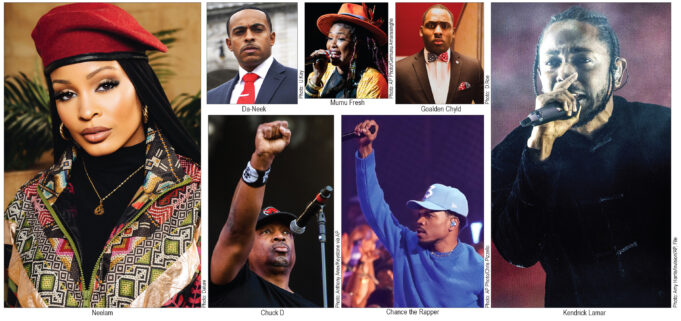
Society is obsessed with the celebrity influence of hip hop, but the culture has been coopted by billion-dollar corporations and money-obsessed executives that promote filth and debauchery. But resistance is getting stronger with artists and activists who have refused to succumb to what the industry demands and are determined to maintain their integrity.
Artists like Chance the Rapper and Vic Mensa, Chuck D, Rapsody, KRS1, Kendrick Lamar and other celebrity influencers are going against popular culture in terms of their art and presenting an alternative view of rap/hip hop culture. That’s not just in music, but in other areas pertinent to Black life in America.
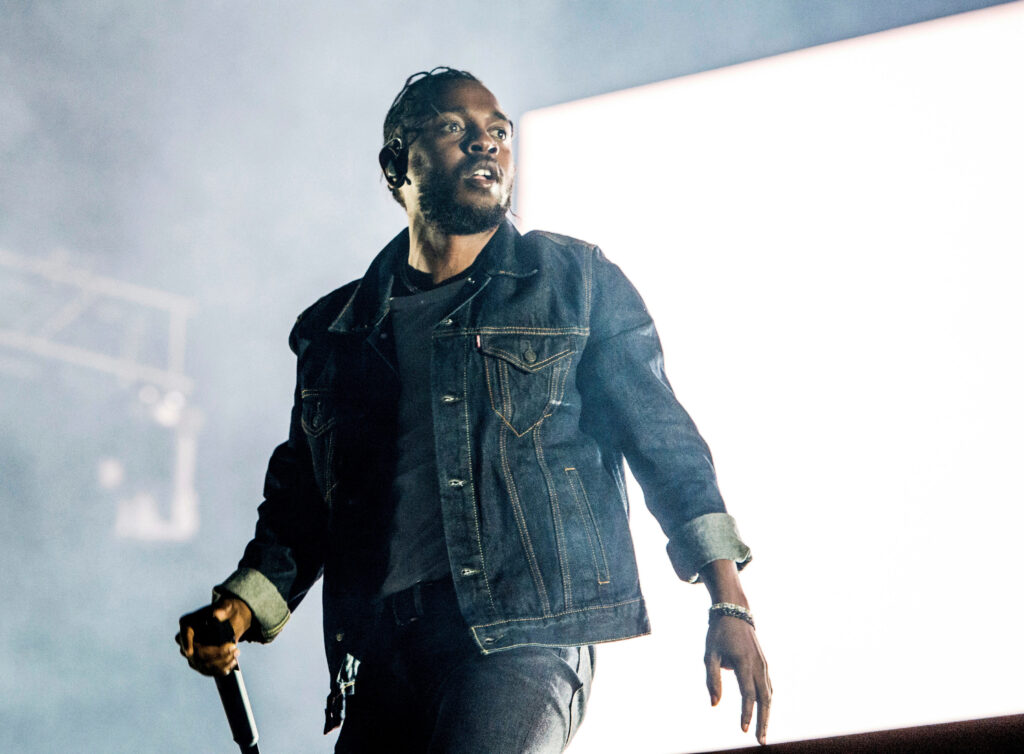
In this July 7, 2017, file photo, Kendrick Lamar performs during the Festival d’ete de Quebec in Quebec City, Canada. (Photo by Amy Harris/Invision/AP, File)
“I think we have to make a distinction to understanding that the culture exists, whether or not it shows up in the mainstream, meaning that I can look at dozens of examples of people who are with the culture that are doing incredible things,” said Dave “Davey D” Cook, a California-based hip hop journalist.
A couple are Chicago hip hop artists Chance the Rapper and Vic Mensa, who announced plans for a 2023 West African music festival. Scheduled to take place on Jan. 6 in Accra, Ghana, the forthcoming Black Star Line Festival is set to go down in the historic Black Star Square, a monument to Ghanaians gaining independence from the United Kingdom in 1957, according to allhiphop.com.
“I think we have to make a distinction to understanding that the culture exists, whether or not it shows up in the mainstream, meaning that I can look at dozens of examples of people who are with the culture that are doing incredible things,” said Dave “Davey D” Cook, a California-based hip hop journalist.
A couple are Chicago hip hop artists Chance the Rapper and Vic Mensa, who announced plans for a 2023 West African music festival. Scheduled to take place on Jan. 6 in Accra, Ghana, the forthcoming Black Star Line Festival is set to go down in the historic Black Star Square, a monument to Ghanaians gaining independence from the United Kingdom in 1957, according to allhiphop.com.
“When Vic and I started our careers and started touring, we did shows all over the U.S. Eventually, we started touring in Europe, we did shows in Asia, South America, Central America, but we never had a chance to play our music for the people who support us the most,” said Chance, reported allhiphop.com.
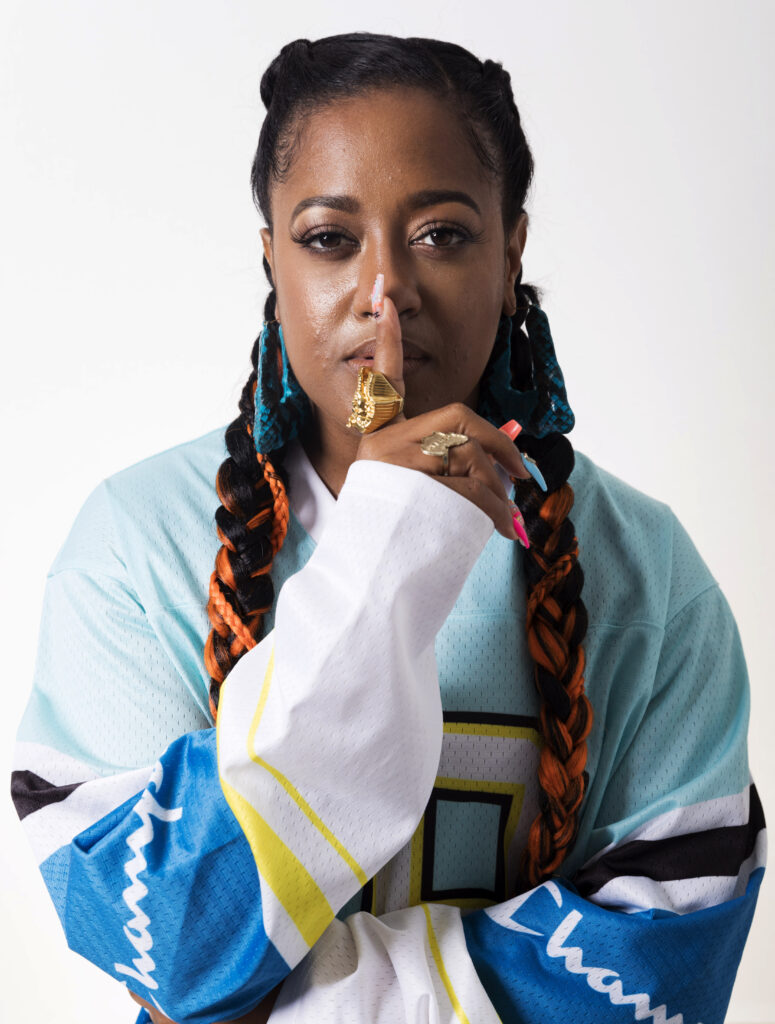
This Aug. 22, 2019 photo shows Rapsody posing for a portrait in New York to promote her latest album “Eve.” (Photo by Brian Ach/Invision/AP)
“When we came here and touched down and felt the love that we received and the fans that we got to connect with, the understanding for the need for the connection became apparent to us. We need a music festival bringing major artists to Ghana. This is what we’re working to create,” the Grammy-winner continued, according to the online music and entertainment source.
Many hope the first hip hop union formed by Rock and Roll Hall of Fame inductee Chuck D of Public Enemy and rap legend Kurtis Blow, will elevate hip hop and liberate even more artists.
Chuck D and Kurtis Blow formed The Hip-Hop Alliance to promote fair wages, fair royalties and strong health and retirement benefits for artists in the hip hop and R&B community. The Hip Hop Alliance is one of the entities under the auspices of the United Coalition For Humanity, according to its creators. The free alliance by artists, for artists, is chaired by KRS-One. Vice-chairman is Doug E. Fresh.
Rapsody is representing not just lyrically through her representation as a Black woman rap artist but she also is using her platform to try and make a difference in communities.
Her second album, “Eve,” her sophomore album was a tribute to the power, struggles, resilience and beauty of Black women with each each song dedicated to a prominent Black woman. She also understands the importance of representation.
“When we came here and touched down and felt the love that we received and the fans that we got to connect with, the understanding for the need for the connection became apparent to us. We need a music festival bringing major artists to Ghana. This is what we’re working to create,” the Grammy-winner continued, according to the online music and entertainment source.
Many hope the first hip hop union formed by Rock and Roll Hall of Fame inductee Chuck D of Public Enemy and rap legend Kurtis Blow, will elevate hip hop and liberate even more artists.
Chuck D and Kurtis Blow formed The Hip-Hop Alliance to promote fair wages, fair royalties and strong health and retirement benefits for artists in the hip hop and R&B community. The Hip Hop Alliance is one of the entities under the auspices of the United Coalition For Humanity, according to its creators. The free alliance by artists, for artists, is chaired by KRS-One. Vice-chairman is Doug E. Fresh.
Rapsody is representing not just lyrically through her representation as a Black woman rap artist but she also is using her platform to try and make a difference in communities.
Her second album, “Eve,” her sophomore album was a tribute to the power, struggles, resilience and beauty of Black women with each each song dedicated to a prominent Black woman. She also understands the importance of representation.
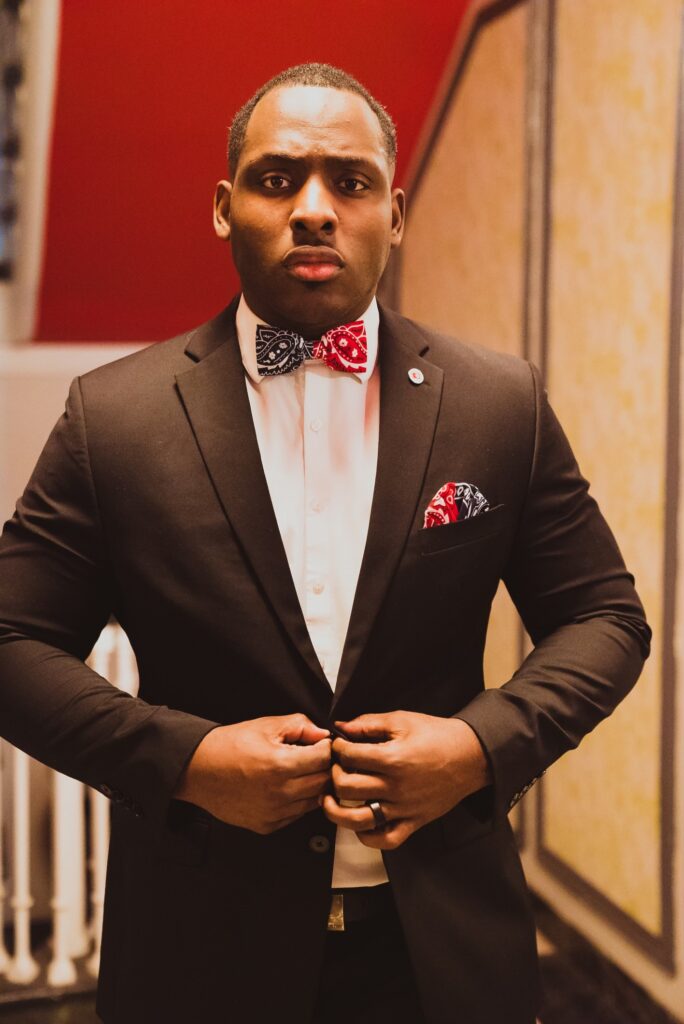
Goalden Chyld
“Just knowing the power that you have with your platform and your voice and for God to even put you in this position, it’s important to me to understand the power that comes with it, the influence, and that you’re impacting peoples’ lives,” she told The Final Call in a 2019 interview.
“It’s just not that I’m going to get up here and perform and just leave and do my video. There are other people on the other end,” said the Snow Hill, N.C. emcee.
“Even if you don’t see them, they see you. Some of them are very impressionable and they are young and they are not able to make sound decisions. So, I have to be cognizant of that and understand what I represent and how I was raised,” she said.
Hip-hop is a multi-billion-dollar industry. According to Afro Tech, back in 2006, ABC News did a special report and announced that the hip-hop industry was worth more than $10 billion a year.
“Just knowing the power that you have with your platform and your voice and for God to even put you in this position, it’s important to me to understand the power that comes with it, the influence, and that you’re impacting peoples’ lives,” she told The Final Call in a 2019 interview.
“It’s just not that I’m going to get up here and perform and just leave and do my video. There are other people on the other end,” said the Snow Hill, N.C. emcee.
“Even if you don’t see them, they see you. Some of them are very impressionable and they are young and they are not able to make sound decisions. So, I have to be cognizant of that and understand what I represent and how I was raised,” she said.
Hip-hop is a multi-billion-dollar industry. According to Afro Tech, back in 2006, ABC News did a special report and announced that the hip-hop industry was worth more than $10 billion a year.
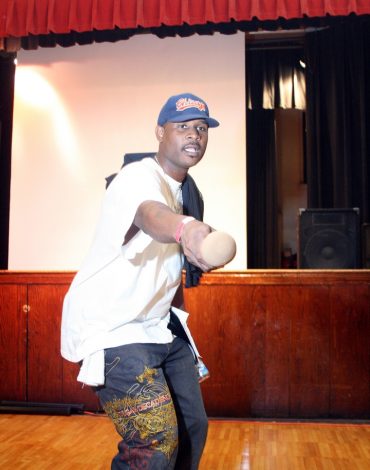
Enoch Muhammad, known as “N.O.C.,” is the co-founder of Hip-Hop Detoxx
“By the time 2016 rolled around, the market grew to $15.7 billion. Year over year, the industry is projected to grow at a rate of $4.08 billion,” reported afrotech.com in 2021.
While hip hop culture is being exported all over the world, along with it is the manufactured and manipulated subculture of gang violence, street violence, and domestic violence against women.
When Kendrick Lamar released “Mr. Morale and the Big Steppers,” his fifth studio album earlier this year, he elevated messaging in hip hop music and took many by surprise, including Enoch Muhammad who said he’s excited by his new album and concert.
In “Mother | Sober,” off his new album the Grammy Award-winning artist from Compton, Calif., raps about the atrocities of the enslavement of Black people and choosing sobriety over alcohol or drug addiction to cope or escape from trauma.
“By the time 2016 rolled around, the market grew to $15.7 billion. Year over year, the industry is projected to grow at a rate of $4.08 billion,” reported afrotech.com in 2021.
While hip hop culture is being exported all over the world, along with it is the manufactured and manipulated subculture of gang violence, street violence, and domestic violence against women.
When Kendrick Lamar released “Mr. Morale and the Big Steppers,” his fifth studio album earlier this year, he elevated messaging in hip hop music and took many by surprise, including Enoch Muhammad who said he’s excited by his new album and concert.
In “Mother | Sober,” off his new album the Grammy Award-winning artist from Compton, Calif., raps about the atrocities of the enslavement of Black people and choosing sobriety over alcohol or drug addiction to cope or escape from trauma.

Neelam
“With Kendrick, the aspect of him having therapy throughout his album is a very powerful dynamic, and it’s really what the masses of the people need to see and hear,” Enoch Muhammad told The Final Call. Enoch Muhammad, also known as “N.O.C.,” is the co-founder of Hip-Hop Detoxx, a Chicago-based program that provides an outlet specifically targeting youth, to counter the violence, drugs, and behavioral issues that plague a large portion of our communities.
Although the overall rate of suicide in the United States decreased by three percent in 2020, the rate of suicide actually increased among many men of color, including Black men, during this time; and between 2011 and 2020, the suicide rate among Black men was three times that of Black women, the Suicide Prevention Resource Center reports, according to 2021 JAMA Network Open analyzed in “5 Reasons Suicide Is on the Rise in the Black Community,” written by Maia Niguel Hoskin, Ph.D.
Kendrick Lamar basically went on a journey for five years and returned with a project that included therapists to help people essentially deal with their grief and anxiety, said Enoch Muhammad.
“With Kendrick, the aspect of him having therapy throughout his album is a very powerful dynamic, and it’s really what the masses of the people need to see and hear,” Enoch Muhammad told The Final Call. Enoch Muhammad, also known as “N.O.C.,” is the co-founder of Hip-Hop Detoxx, a Chicago-based program that provides an outlet specifically targeting youth, to counter the violence, drugs, and behavioral issues that plague a large portion of our communities.
Although the overall rate of suicide in the United States decreased by three percent in 2020, the rate of suicide actually increased among many men of color, including Black men, during this time; and between 2011 and 2020, the suicide rate among Black men was three times that of Black women, the Suicide Prevention Resource Center reports, according to 2021 JAMA Network Open analyzed in “5 Reasons Suicide Is on the Rise in the Black Community,” written by Maia Niguel Hoskin, Ph.D.
Kendrick Lamar basically went on a journey for five years and returned with a project that included therapists to help people essentially deal with their grief and anxiety, said Enoch Muhammad.
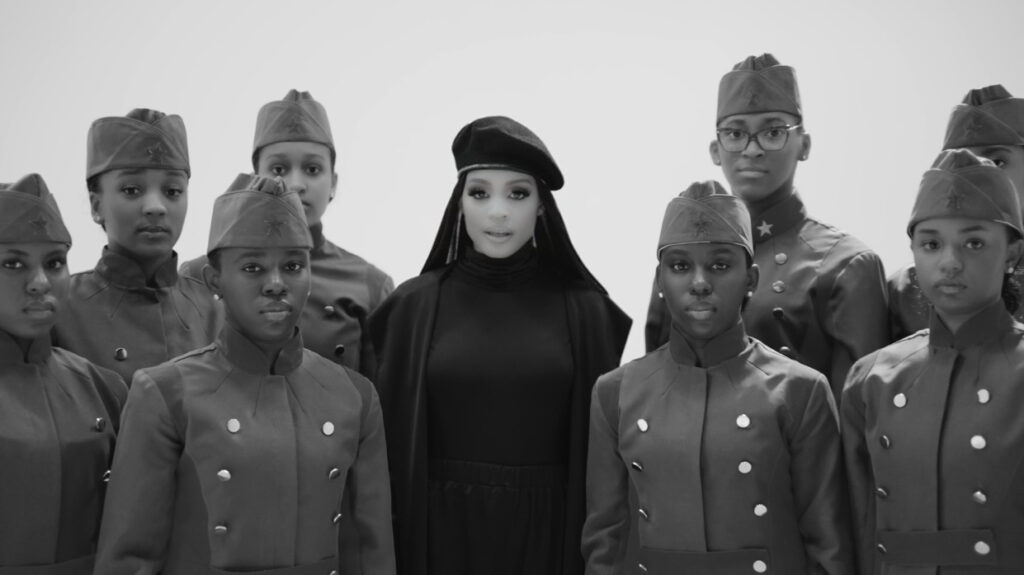
Screenshot of Neelam Hakeem with the Jr. Vanguard drill team of Houston’s Mosque No. 45 in a scene from the music video “We Got Em Like,” that also features artists Da-Neek and Goalden Chyld. The video has generated excitement and has garnered thousands of views on social media. Photo: Marquis Muhammad
In addition to therapy, relationships, celebrity, cancel culture, and spirituality are just a few of the themes tackled on “Mr. Morale,” noted music critics. Seeing what he has been doing across the country with his concert has been very inspirational, said Enoch Muhammad, who in addition to his own background as an artist, consults, manages and books hip hop artists.
There has to be the conscious decision not to chase the “bag” (hip hop slang for wealth or money), said author, scholar, researcher and Nation of Islam Student Minister Dr. Wesley Muhammad. It doesn’t matter whether it’s a rap career or corporate office, if one’s ambition is true, what’s also true is that the holder of that bag can get Black artists to do what they want, he said.
Student Min. Wesley Muhammad gave a shout out to young Muslim artists Neelam Hakeem, Da-Neek X and Golden Chyld (Qadir Muhammad), during his address from Mosque Maryam at Nation of Islam headquarters on July 24 in Chicago.
In addition to therapy, relationships, celebrity, cancel culture, and spirituality are just a few of the themes tackled on “Mr. Morale,” noted music critics. Seeing what he has been doing across the country with his concert has been very inspirational, said Enoch Muhammad, who in addition to his own background as an artist, consults, manages and books hip hop artists.
There has to be the conscious decision not to chase the “bag” (hip hop slang for wealth or money), said author, scholar, researcher and Nation of Islam Student Minister Dr. Wesley Muhammad. It doesn’t matter whether it’s a rap career or corporate office, if one’s ambition is true, what’s also true is that the holder of that bag can get Black artists to do what they want, he said.
Student Min. Wesley Muhammad gave a shout out to young Muslim artists Neelam Hakeem, Da-Neek X and Golden Chyld (Qadir Muhammad), during his address from Mosque Maryam at Nation of Islam headquarters on July 24 in Chicago.
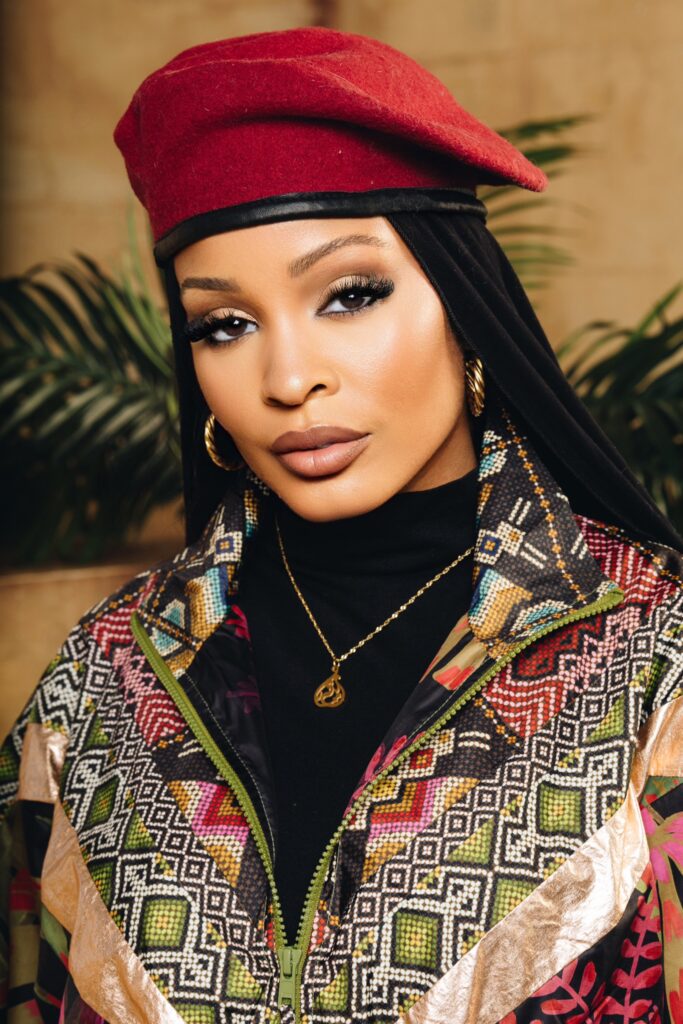
Neelam
“The music they are doing, certainly their latest project, it’s really electric in terms of what it anticipates for the future of hip hop,” he said. “Hip hop is in a very bad state, in the direction that the current writers absolutely intend it to go. The current artists do not have the best interests of Black people at hand,” stated Student Min. Wesley Muhammad.
The trio are registered members of the Nation of Islam, setting the industry ablaze with their music video, “We Got ‘Em Like,” released on Neelam Hakeem’s “Anomalous,” this year. The video has generated tens of thousands of views on social media.
Their alternative music and views stem directly from their knowledge of the Teachings of the Most Honorable Elijah Muhammad under the guidance of the Honorable Minister Louis Farrakhan. Their video features the Houston Jr. Vanguard Drill Team, to stamp the NOI’s image, explained Marquis Muhammad, Neelam’s husband and business partner/manager.
The song was inspired by Chicago producer Vinson Muhammad, also known as Alaz, said Marquis Muhammad.
“There hasn’t been any one really doing this and I’m seeing it everywhere, just different artists who are doing stuff, but no one really just speaks about who did this,” he told The Final Call.
“I feel like the (Black) Panthers get more credit for what the Honorable Elijah Muhammad did. Out of respect, we’d love for everybody to get the inspiration, but there were no Panthers in the 30s or 40s and 50s. They came in ‘66. Before that the Honorable Elijah Muhammad was stamping this thing, so we just felt like it’s important,” stated Marquis Muhammad.
“Honestly, I’m inspired by everyone who stands alone, and goes against anything that’s mainstream or trending or whatever is ‘in,’ said Neelam. “That person who was like, ‘I’m straight. I’m me, regardless,’ I’m inspired by that. That’s in art. That’s in music. That’s in movies. That’s in anything, everyday life, where I’ll see something like hey, that’s dope,” she added.
“The music they are doing, certainly their latest project, it’s really electric in terms of what it anticipates for the future of hip hop,” he said. “Hip hop is in a very bad state, in the direction that the current writers absolutely intend it to go. The current artists do not have the best interests of Black people at hand,” stated Student Min. Wesley Muhammad.
The trio are registered members of the Nation of Islam, setting the industry ablaze with their music video, “We Got ‘Em Like,” released on Neelam Hakeem’s “Anomalous,” this year. The video has generated tens of thousands of views on social media.
Their alternative music and views stem directly from their knowledge of the Teachings of the Most Honorable Elijah Muhammad under the guidance of the Honorable Minister Louis Farrakhan. Their video features the Houston Jr. Vanguard Drill Team, to stamp the NOI’s image, explained Marquis Muhammad, Neelam’s husband and business partner/manager.
The song was inspired by Chicago producer Vinson Muhammad, also known as Alaz, said Marquis Muhammad.
“There hasn’t been any one really doing this and I’m seeing it everywhere, just different artists who are doing stuff, but no one really just speaks about who did this,” he told The Final Call.
“I feel like the (Black) Panthers get more credit for what the Honorable Elijah Muhammad did. Out of respect, we’d love for everybody to get the inspiration, but there were no Panthers in the 30s or 40s and 50s. They came in ‘66. Before that the Honorable Elijah Muhammad was stamping this thing, so we just felt like it’s important,” stated Marquis Muhammad.
“Honestly, I’m inspired by everyone who stands alone, and goes against anything that’s mainstream or trending or whatever is ‘in,’ said Neelam. “That person who was like, ‘I’m straight. I’m me, regardless,’ I’m inspired by that. That’s in art. That’s in music. That’s in movies. That’s in anything, everyday life, where I’ll see something like hey, that’s dope,” she added.
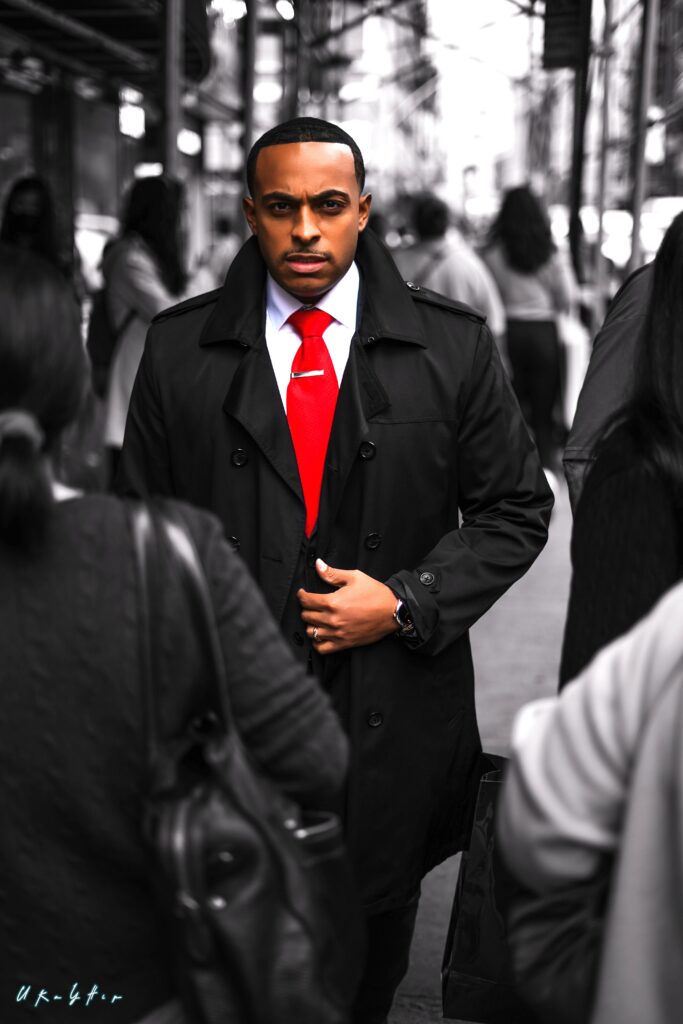
Da-Neek
For his part, Da-Neek featured the Fruit of Islam (FOI, the men of the Nation of Islam) Drill Team of New York’s historic Mosque No. 7 in Harlem. A key to freedom for artists is knowledge, which manifests in their artistic projection, he said.
“Just stay consistent. Know what you’re doing, care for what you love, and put time into what you love. I would tell artists worry about the image you’re putting out and don’t mislead people,” he recommended.
The video was so impactful, he felt like going through the process of joining the Nation of Islam all over again, said Goalden Chyld, who is based in Chicago. He was especially moved by people who said in social media comments under the video that they’re not members of the Nation of Islam, but “love what these brothers and sisters are doing.’”
“We all do our thing in our own respective rights, but I do feel like this music video really stamped the fact that there is a lane for not only conscious artists, but this is a lane right here that we created, the Nation! I don’t even know what to call it—positive, conscious, militant, Islam, revolutionary … this is an entirely new genre that I feel like we created, and All Holy Praise Is Due to Allah. We’re doing God’s work,” Goalden Chyld told The Final Call.
It starts with making a fundamental, conscious decision that they aren’t going to chase the bag, said Dr. Wesley Muhammad. It doesn’t matter whether it’s a rap career or corporate office, then the holder of that bag can get people to do anything he wants, and the holder of that bag currently is Satan, he added.
It becomes difficult for artists to be authentic when they’re not connected to structures, organizations, or groups that work toward a common goal, explained Enoch Muhammad. Hip Hop Detoxx doesn’t just perform concerts, but they engage juvenile detention centers, go into group homes, high schools, and universities to help people hone their art and culture as tools to help alleviate themselves and their people from wounds, pain, and traumas past and present, he shared.
“That’s what our art form has the power to do, when we lend ourselves to that cause and to that mission, so you have to work with, link with, be part of entities like Hip Hop Detox so then you can grow,” he added.
“You can’t rely on an industry that’s dedicated towards the degradation of human beings to uplift artists who are working towards the complete upliftment and liberation of Black people and humanity.”
For his part, Da-Neek featured the Fruit of Islam (FOI, the men of the Nation of Islam) Drill Team of New York’s historic Mosque No. 7 in Harlem. A key to freedom for artists is knowledge, which manifests in their artistic projection, he said.
“Just stay consistent. Know what you’re doing, care for what you love, and put time into what you love. I would tell artists worry about the image you’re putting out and don’t mislead people,” he recommended.
The video was so impactful, he felt like going through the process of joining the Nation of Islam all over again, said Goalden Chyld, who is based in Chicago. He was especially moved by people who said in social media comments under the video that they’re not members of the Nation of Islam, but “love what these brothers and sisters are doing.’”
“We all do our thing in our own respective rights, but I do feel like this music video really stamped the fact that there is a lane for not only conscious artists, but this is a lane right here that we created, the Nation! I don’t even know what to call it—positive, conscious, militant, Islam, revolutionary … this is an entirely new genre that I feel like we created, and All Holy Praise Is Due to Allah. We’re doing God’s work,” Goalden Chyld told The Final Call.
It starts with making a fundamental, conscious decision that they aren’t going to chase the bag, said Dr. Wesley Muhammad. It doesn’t matter whether it’s a rap career or corporate office, then the holder of that bag can get people to do anything he wants, and the holder of that bag currently is Satan, he added.
It becomes difficult for artists to be authentic when they’re not connected to structures, organizations, or groups that work toward a common goal, explained Enoch Muhammad. Hip Hop Detoxx doesn’t just perform concerts, but they engage juvenile detention centers, go into group homes, high schools, and universities to help people hone their art and culture as tools to help alleviate themselves and their people from wounds, pain, and traumas past and present, he shared.
“That’s what our art form has the power to do, when we lend ourselves to that cause and to that mission, so you have to work with, link with, be part of entities like Hip Hop Detox so then you can grow,” he added.
“You can’t rely on an industry that’s dedicated towards the degradation of human beings to uplift artists who are working towards the complete upliftment and liberation of Black people and humanity.”
Final Call staff contributed to this report.
No comments:
Post a Comment